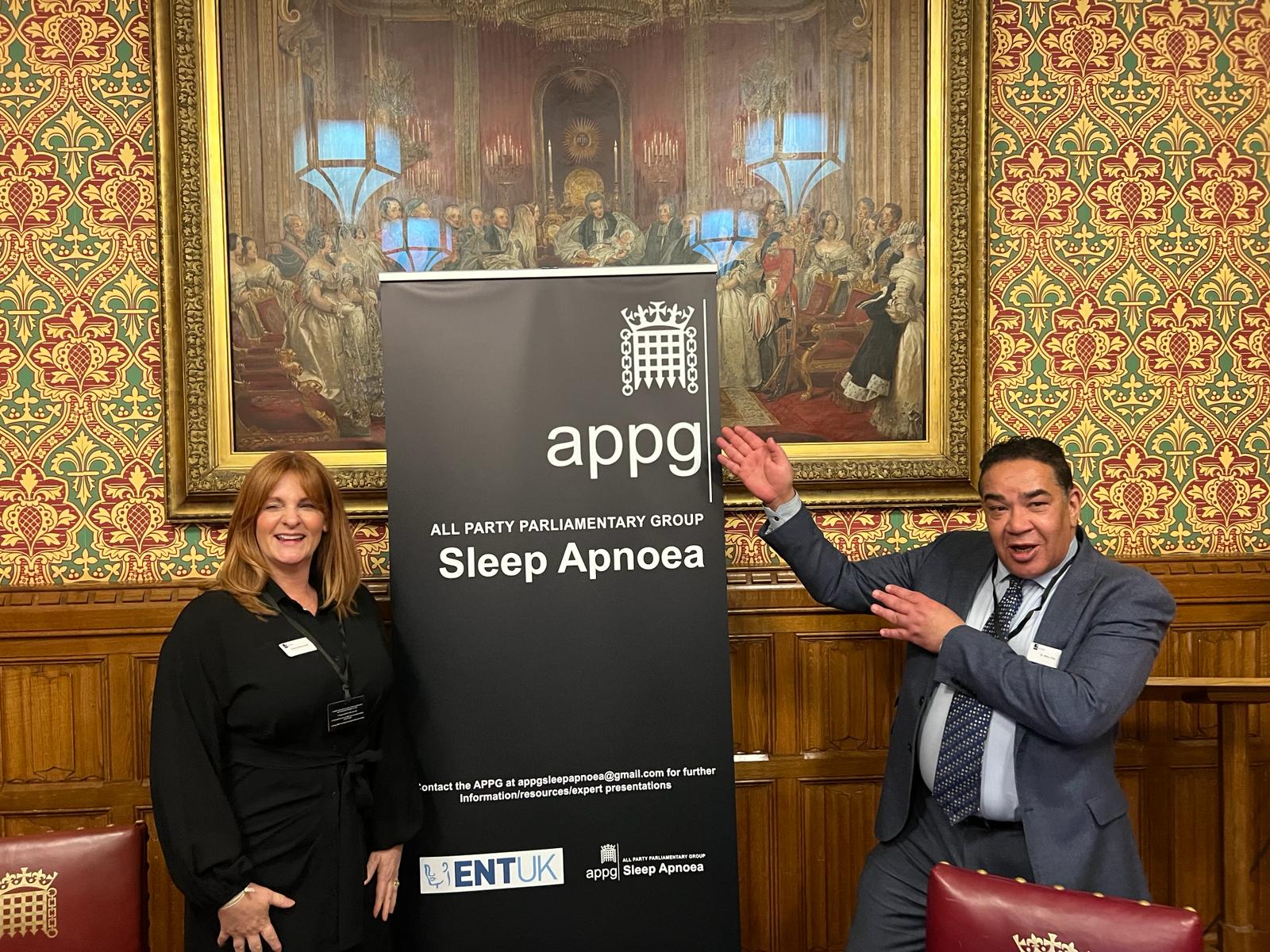All Party Parliamentary Group for Sleep Apnoea launch
7th February 2024 will mark the launch of the new All-Party Parliamentary Group (APPG), which has been established to highlight Obstructive Sleep Apnoea (OSA).

Professor Ram Dhillon, Consultant ENT Surgeon and representing ENT UK on the APPG, states that:
“OSA is a serious debilitating medical disorder, and according to the UK Sleep Survey has increased dramatically with the obesity epidemic over the last 20 years and now 8.7% of men and 5.6% of women aged 30 -75 in the UK have OSA. This equates to a health burden of just over 4 million individuals, as prevalent as diabetes.”
Hosted by Chair Seema Malhotra MP and Co-Chair Lord Karan Bilimoria there will be an opportunity to listen to patients’ experience of OSA and quiz OSA experts. Chair of the APPG, Seema Malhotra MP, states:
“I am delighted to launch the APPG on Sleep Apnoea in Parliament. Sleep Apnoea (OSA) is effectively strangulation, which lowers oxygen levels, occurs during sleep, and has catastrophic medical consequences downstream if not managed. Snoring is its primary Symptom. The APPG will provide a highly influential cross-party forum highlighting this medical condition.”
Furthermore, Lord Karan Bilimoria, Co-Chair of the APPG, adds:
“This APPG has been initiated to raise awareness of this not-so-silent medical disorder to address patients’ clinical needs and reduce/prevent downstream costs to the individual and the economy. We will be holding high-level parliamentary round tables on key issues.”
The key feature of OSA is snoring, with periods of silence during sleep, the latter being the apnoea’s, with cessation of air entering the lungs. Think of it as strangulations eliciting a flight or fright response. This lack of airflow lasts at least 10 seconds and can persist beyond that: 20, 30, 40… seconds!
Sleep apnoea specialist and advisor to the APPG, Dr Michael Oko, outlines the health risks:
“OSA disproportionately affects men, postmenopausal women and certain minority communities. It has significant consequences, being associated with obesity (x 2 increase), stroke, cancer (x1.5 increase), diabetes (54% will have OSA), and dementia (50% have OSA). Due to daytime sleepiness, there is also a loss of productivity and an increased risk of fatal road traffic accidents.
“Left untreated for 12 years, which is common, 15% of individuals will have a heart-related fatality, and 33% will have a medical catastrophe that leaves them requiring long-term health and social care. The personal and healthcare costs run into £100s of millions. Therefore, addressing OSA should be one of the most fundamental medical disorders to address in the next decade.”
NICE (National Institute of Health & Care Excellence) recommends that management can reverse OSA and normalise patient risks.
